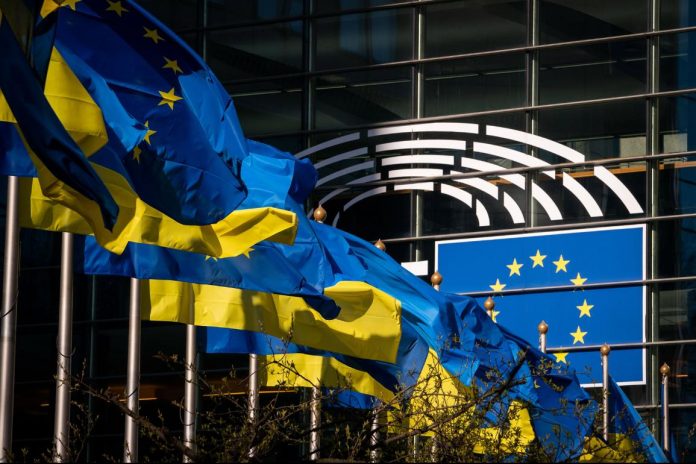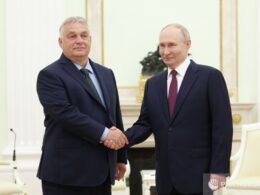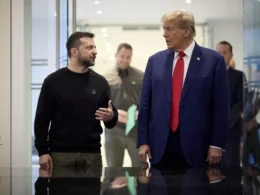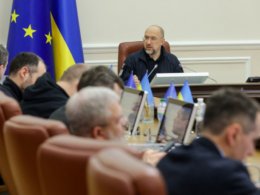Vice President of the European Commission for Values and Transparency Věra Jourová said that despite the Kremlin's attempts to convince Europeans that Ukraine was a failed state, the bloc continued and would continue to support Kyiv on its path to European membership.
She also emphasized that the EU would not push the country for territorial concessions in exchange for a peace deal with Russia, according to Novinky referring to Jourová's interview with Právo.
“Ukraine is in the first place the one to decide when and under what circumstances this war will end. If Putin were to win the war, it would be a signal to everyone in the world who wants to illegally seize territories of the other countries,” she underlined.
Jourová said the war in Ukraine is not just a conflict between two states but also a battle between dictatorship and democracy, agreeing that the ongoing Russo-Ukrainian war is a war of values. She noted that Russian President Putin is willing to sacrifice hundreds of thousands of the lives of his citizens with ease:
“Once again, it turns out that human life has no value in Putin's Russia. The European concept, in which the life and freedom of individuals are paramount, opposes it,” the official explained.
In her opinion, Ukraine would also join Europe when it takes necessary steps and implements reforms, most likely in several years, as accession talks have already begun.
Ukraine stands on the edge of another enormous task - aligning its laws with European legislation.
“This marks the beginning of a truly complex process, and Ukrainians said they are ready for it," said Jourová.
When asked whether accession talks should be held in a country that does not control its entire territory, Jourová said:
“From a moral point of view, it would be very problematic if we said to Ukraine: first settle the territory, and then we will start talking about accession.”
Věra Jourová said that once the Ukraine accession talks open, all Ukrainian laws must be brought into line with European legislation, which will be "the start of a really difficult process and the Ukrainians report that they are ready for it."
On 14 December, President of the European Council Charles Michel announced the EU member states decided to start EU accession talks with Ukraine and Moldova on the first day of the EU Council Summit in Brussels. Michel called the decision a “historic moment” that demonstrated the strength of the European Union.
“Historic moment” as European Council decides to open accession talks with Ukraine
Hungary was consistently reluctant to initiate talks with Kyiv but did not exercise its veto power. Prime Minister Viktor Orban briefly exited the room, following a pre-arranged and constructive plan, as the remaining 26 leaders proceeded with the vote.
Later, he vetoed the proposal to provide a €50 billion financial aid package for Ukraine. This raised questions about Europe’s continued support for Kyiv.
Bloomberg: Germany expects EU to provide Ukraine aid even without Hungary approval
EU leaders would hold an extraordinary summit in February to address the assistance impasse.
The aid package aims to assist Ukraine as it faces the two-year mark in its war with Russia. Political disputes have delayed over $110 billion in US and EU assistance.
Related:
- US announces $ 250 mn military aid package for Ukraine, “the last until Congress authorizes additional funds”
- The Guardian: Ukraine’s path to victory requires improved weapon supply chain and more support from NATO, expert warns
- FT: EU crafts €20 bn plan B for Ukraine aid to bypass Hungary veto
- FT: EBRD shareholders back €4 bn capital increase for Ukraine
- Commander: Ukrainian troops face artillery shortages, scale back some operations





